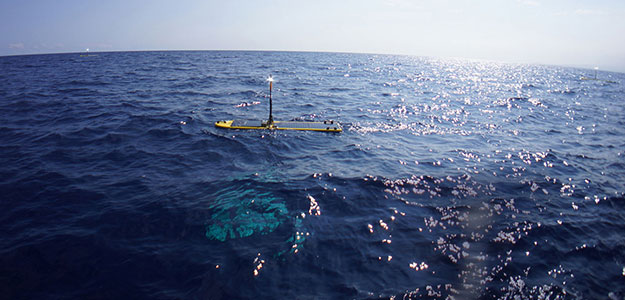Customer
Japan Coast Guard (JCG)
Mission Location
The waters of Japan
Highlights
- Deployed fleets of Wave Gliders to four regions in 2016
- Expanded unmanned ocean observation network to the 9th Regional District in 2018
- JCG publishes live environmental data for Japan’s commercial fisheries and tourism industries
“Hydro Systems Development is excited to support the Japan Coast Guard in their efforts to better monitor Japan’s ocean environment and ensure the safety of those in and around the sea. The Wave Glider presents a game-changing technology for the ocean environment and for the Japan Coast Guard.”
The Challenge
While Japan ranks 61st in the world in terms of land area (380,000 km2), its territorial waters and exclusive economic zone are considerably larger (4,470,000 km2), ranking 8th in the world. As an island nation, Japan’s safety and economy are closely tied to the ocean. While this presents opportunities, it also presents challenges.
As the agency responsible for Japan’s waters, the Japan Coast Guard (JCG) manages maritime security, search and rescue work, oceanographic research, marine environment preservation, maritime safety operations, and disaster mitigation.
JCG turned to Liquid Robotics and our Japanese partner Hydro Systems Development (HSD) to determine how unmanned systems could help them more effectively monitor Japan’s ocean environment and ensure the safety of those in and around the sea.
The Approach
In the summer of 2016, a fleet of Wave Gliders arrived in Japan, ready to provide real-time situational awareness of ocean currents, wave activity, and weather along Japan’s coastlines. Wave Gliders were deployed in four of Japan’s eleven regional districts, forming the first unmanned ocean observation network in Japan’s history.
Wave Gliders are environmentally safe and a more effective way to expand national ocean observation systems when compared to traditional methods such as ships. By utilizing a network of unmanned systems, JCG is able to provide access to continuous, real-time meteorological and oceanographic information from seas where monitoring ships often cannot operate and without putting personnel at risk.

Some of the JCG fleet in the waters off the south west coast of Japan.
The Results
After a successful rollout to four initial regions, in 2018 JCG expanded their unmanned ocean observation fleet of Wave Gliders to the 9th Regional District, headquartered in Niigata, Japan, demonstrating their ongoing commitment to ocean monitoring.
JCG publishes the environmental data for free and in real-time to Japan’s commercial fisheries and tourism industries. The availability of both current and historical oceanographic data provides the commercial and tourism industries with increased insight into weather patterns and ocean conditions that could adversely affect the safety and efficiency of their maritime operations. Ocean currents in particular vary from hour to hour; in the event of a marine accident requiring search and rescue or oil spill mitigation, having accurate information on the direction of seawater flow can be very important.
What’s Next?
HSD continues to explore new uses for the Wave Glider in Japan. Additionally, HSD is evaluating potential future uses that include harvesting data from ocean bottom seismographs or monitoring crustal movements on the seafloor using the GPS-acoustic (GPS-A) technique. With unmanned systems like the Wave Glider, this important real-time data can help with earthquake research and tsunami warnings can be collected more frequently and more dependably.